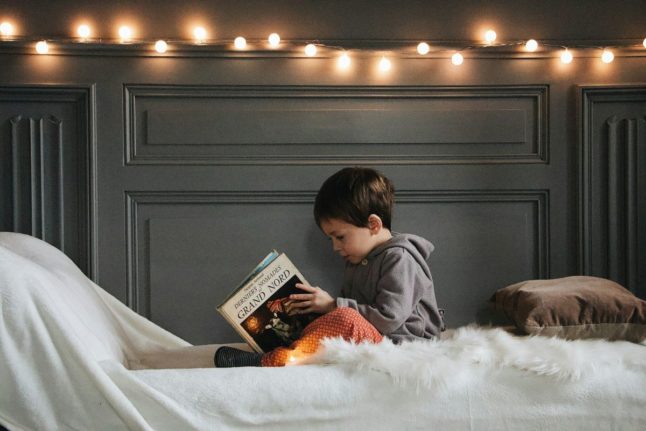While the sheer number of fluent English speakers in Norway and the existence of jobs where Norwegian won’t be the primary working language means that it is entirely possible to get by in the Nordic country with a limited grasp of the local tongue.
However, learning the language can considerably improve your life in Norway, boosting your career prospects, helping you feel more settled and making it easier to make friends with the locals.
Unfortunately, learning a language can seem like an incredibly daunting ordeal, and the fear of plunging into the deep end only grows the longer you leave it. But, it doesn’t have to be that way, as language expert Tor Mæhre told The Local.
“My advice is to start small. If you’re in Norway, just speak with the shop staff: “Hei” or “god dag” is a good starting point. If you’re not in Norway, you can try looking for a tutor on different teaching platforms or with a local teacher. Just a 30-minute lesson will be a huge leap when starting out,” he said.
Mæhre is perhaps better known among language learners as the man behind Norwegian with Tor, the online platform he set up to help teach Norwegian online to students of all ability levels.
After starting teaching Norwegian five years ago, Mærhe has grown a social media following, with over 60,000 followers on Instagram, while also sharing videos on TikTok and Youtube.
Getting to grips with a new set of grammar rules can be one of the most intimidating challenges when learning a new language. Although, the language expert, now based out of Bergen on the west coast of Norway, explained that compared to other languages, Norwegian is relatively straightforward.
“I will say that starting out, you’ll see that Norwegian grammar is surprisingly simple. It’s only at a higher level (A2 level +) you’ll be confronted with confusing clauses and conjugations etc. So, for beginners, Norwegian is probably the best choice if you are allergic to grammar,” Mærhe explained.
He also shared three expert tips for learning Norwegian with The Local.
Tip one: Listen carefully
“My first piece of advice is to listen carefully. The pronunciation is probably the most confusing part of the language since written Norwegian (bokmål) is not the same as spoken Norwegian. This is due to all the dialects in our country and also due to odd rules regarding specific words,” the language expert said.
Tip two: Don’t get overwhelmed
“My second piece of advice is to not get overwhelmed. Don’t listen to difficult podcasts or watch movies without subtitles at the start. Secondly, we have hundreds of dialects here. So, begin easy and learn, for example, southern (Oslo dialect). Learn the fundamentals here, and later on, you can try out other dialects if you’d like,” Mærhe explained.
Tip three: Do what works best for you
“My third piece of advice is to find resources you’d like to learn Norwegian from. Some people like YouTube. Some like Duolingo. Some like Instagram. We’re all different. You find plenty of free resources out there. And when you’re ready to take the next leap, you can think about buying a book or potentially a language course,” Mærhe said.
“When speaking of resources. I share videos and posts every day on my own Instagram page, where you can hear and read Norwegian on a daily basis. It’s an excellent start for you who are eager to start out,” he added.



 Please whitelist us to continue reading.
Please whitelist us to continue reading.
Member comments